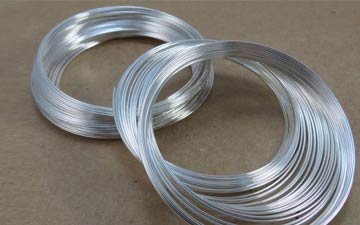Nitinol is a shape memory alloy (SMA), primarily composed of nickel (Ni) and titanium (Ti) in roughly equal atomic percentages. This unique alloy exhibits the extraordinary ability to remember its original shape and return to it when subjected to certain stimuli, such as heat or mechanical stress. This characteristic is known as "shape memory effect" and is one of the most remarkable properties of Nitinol.
Nitinol is typically manufactured through a process involving controlled heating and cooling of the alloy in specific conditions to induce its desired properties. This process includes melting and alloying of nickel and titanium in precise ratios, followed by controlled cooling to create the desired microstructure.

| Property | Value |
|---|---|
| Density | ~6.45 g/cm³ |
| Young's Modulus | 41-55 GPa |
| Poisson's Ratio | ~0.33 |
| Tensile Strength | 400-1100 MPa |
| Yield Strength | 200-700 MPa |
| Elongation at Break | 10-25% |
| Hardness (Vickers) | ~300 HV |
| Melting Point | ~1310°C |
| Thermal Conductivity | ~10 W/(m·K) |
| Coefficient of Thermal Expansion | ~10-20 µm/(m·K) |